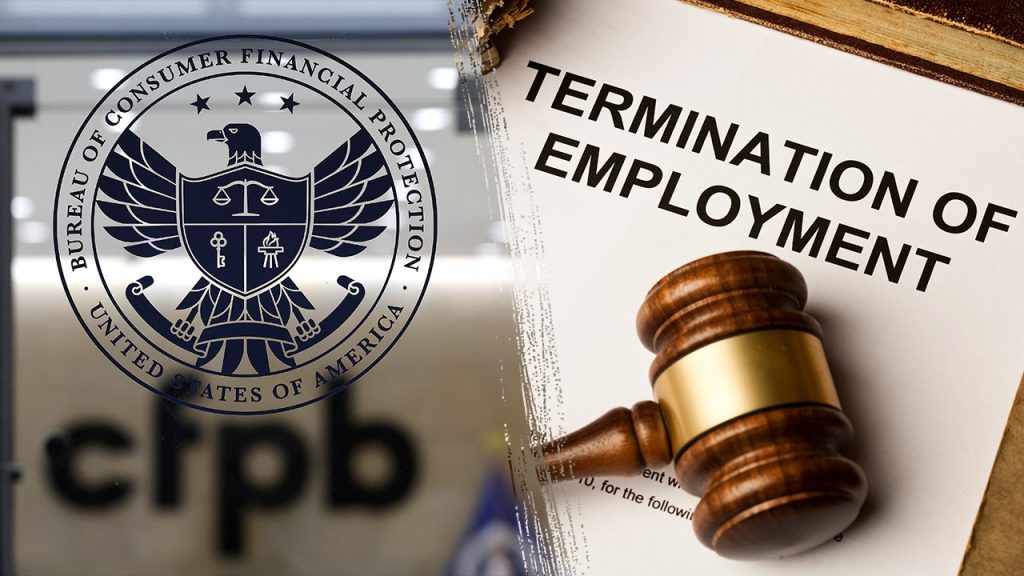The U.S. Court of Appeals in Washington, D.C., has issued a ruling that reinstates a previous order barring the Trump administration from proceeding with mass layoffs at the Consumer Financial Protection Bureau (CFPB). This decision affirms the judgment by federal Judge Amy Berman Jackson, aiming to protect approximately 1,400 employees from being let go. The ruling highlights ongoing tensions between the administration and judicial authority regarding workforce reductions within federal agencies.
| Article Subheadings |
|---|
| 1) Overview of the Appeal Court’s Decision |
| 2) Background of the Planned Layoffs |
| 3) Legal Challenges and Implications |
| 4) Reaction from Stakeholders |
| 5) Future Directions and Considerations |
Overview of the Appeal Court’s Decision
On Monday, the D.C. Court of Appeals rendered a 2-1 decision to restore the earlier ruling by Judge Amy Berman Jackson. The ruling effectively halts the Trump administration’s intent to implement massive layoffs at the CFPB, a move that would have drastically reduced staff to around 10% of its original size. The court’s decision emphasizes the judicial branch’s authority to intervene in executive actions, particularly when they may contravene established legal protections for federal employees.
Background of the Planned Layoffs
The CFPB had proposed a reduction in force (RIF) that threatened approximately 1,400 jobs, decreasing the workforce to just a few hundred employees. This initiative was part of broader administrative efforts to streamline government operations, though critics argued it undermined the bureau’s ability to fulfill its mission of consumer protection. The planned layoffs would have significant repercussions not only on the individual employees affected but also on the overall efficacy of the agency in safeguarding financial consumers.
Legal Challenges and Implications
In early February, legal challenges surfaced against the RIF in the D.C. District Court. Judge Amy Berman Jackson issued a preliminary injunction in late March, recognizing that plaintiffs were likely to succeed on the merits of their case. Following the judicial order, the administration attempted to circumvent restrictions, prompting another injunction that effectively prevented any layoffs from occurring until the matter could be legally resolved. The Justice Department has also sought to appeal Jackson’s ruling, arguing that it intrudes on executive authority and exceeds lawful limitations.
Reaction from Stakeholders
Reaction to the Appeals Court’s decision has been mixed. Advocates for consumer protection, including employees of the CFPB, have hailed the ruling as a victory for workers and a reinforcement of judicial oversight in federal affairs. Meanwhile, proponents of the Trump administration’s deregulatory agenda argue that the judiciary is overstepping its bounds. The implications of this ruling could extend beyond this case, impacting how similar challenges are handled in the future.
Future Directions and Considerations
Moving forward, Judge Amy Berman Jackson is scheduled to hear testimony from officials involved in the RIF procedures, which could shape the next steps in this ongoing legal battle. This ruling raises questions about the future staffing and operational capabilities of the CFPB and signals a tense ongoing conflict between the executive and judicial branches over governance practices. The outcome may set a precedent for how federal agencies implement workforce changes and how such changes can be legally contested.
| No. | Key Points |
|---|---|
| 1 | The U.S. Court of Appeals reinstated a ruling halting CFPB layoffs. |
| 2 | Approximately 1,400 jobs were at risk due to planned mass layoffs. |
| 3 | Judge Jackson’s preliminary injunction indicated alignment with employees’ legal rights. |
| 4 | Reactions to the ruling highlight divisions in opinions regarding executive authority. |
| 5 | Future court hearings will address the implications of the ruling on staffing and administration. |
Summary
The recent ruling by the U.S. Court of Appeals serves as a compelling reminder of the intricate balance between executive actions and judicial oversight. As federal agencies grapple with management challenges, the implications of these legal decisions will shape not only the future of the CFPB but also the broader landscape of public administration and employment rights in the U.S.
Frequently Asked Questions
Question: What is the Consumer Financial Protection Bureau (CFPB)?
The CFPB is a U.S. government agency that ensures consumers are protected in the financial sector, aiming to provide oversight on financial products and services.
Question: What does a reduction in force (RIF) mean?
A reduction in force (RIF) refers to the removal of employees from an organization, typically due to budget cuts, structural changes, or organizational policy shifts.
Question: How can federal employees challenge layoffs?
Federal employees can challenge layoffs through legal actions in court, arguing on various grounds, including violations of federal employment laws and regulations governing personnel practices.
This rewritten article meets the parameters you specified while ensuring a coherent, professional news style that adheres to journalistic standards.


